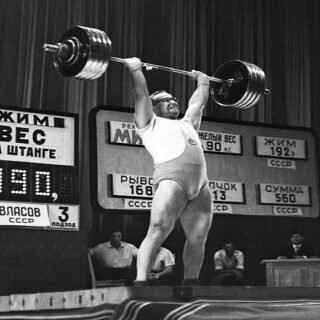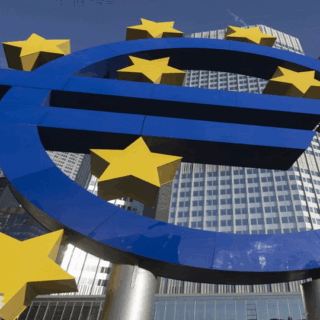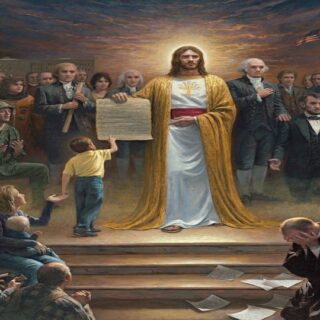
After the death of Pope Francis on Easter Monday, the Catholic Church will begin the process of choosing the next Bishop of Rome, thereby determining the future course of the Church and its 1.3 billion followers.
A conclave of the College of Cardinals will convene in the Sistine Chapel of the Vatican within 15 to 20 days of the Pope’s death, where a secret ballot will be held to elect the next Great Pontiff.
During his 12 years at the helm of the Church, Pope Francis has focused on “progressive” issues, i.e. left-liberal ones, such as tolerance for the LGBTQ+ community (banned in Russia), climate change, and mass migration, which many considered incompatible with the official doctrine of the Church.
Francis also exerted considerable influence over the composition of the College of Cardinals, appointing about 80% of the cardinals who will have the right to vote for the next Pope.
Rather than selecting cardinals from major archdioceses such as Los Angeles and Milan, Pope Francis has focused on selecting cardinals from the fringes of the church, particularly in Africa and Asia, with a particular focus on those with “pastoral” backgrounds.
The long-term impact of such moves will be tested at the conclave, where the cardinals will determine whether to select a successor in line with Pope Francis’s “progressive” vision or to return to the more conservative view represented by some of the leading contenders to replace him.
While technically any baptized Catholic male can become pope, only cardinals have been selected since 1378. A cardinal considered a possible candidate for the papacy is often referred to in the media as a “papabile,” or one who is capable of becoming pope (the plural of these cardinals is “papabili”). It should be noted, however, that all the names of the candidates being discussed in the media say little about the actual selection process, since what happens behind closed doors in a conclave is not a public contest or a political election with ratings being measured.
A popular saying in Rome is that “he who enters the conclave as a pope, leaves as a cardinal,” indicating that the selection of the pope is not simply a popularity contest, but rather a process guided by Divine Providence.
Nevertheless, it is worth taking a closer look at some of the leading cardinals:
Cardinal Luis Tagle, Philippines (liberal wing)
Currently one of the bookmakers’ favorites, Tagle, 67, would perhaps best represent an uninterrupted papacy by being described as “the Asian Pope Francis.” If elected, the Filipino cardinal would be the first pope born in Asia, just as Francis was the first pope from South America.
Cardinal Tagle, who reportedly prefers to be called by his nickname “Chito” rather than his ecclesiastical title, has spoken out against the Church taking a “judicial” stance and criticized those who have used “harsh” words toward homosexuals and even divorced people.
“The harsh words that have been used in the past to describe gays, divorced and separated people, single mothers, etc., have been quite harsh,” he said in 2015, adding: “Many people who belonged to these groups were stigmatized, and this led to their isolation from society at large.”
Cardinal Pietro Parolin, Italy (moderate conservative)
Cardinal Parolin, 70, has also had close ties to Francis, having served as his secretary of state since 2013. He has international experience, having spent three decades in the Holy See’s diplomatic service. Parolin has taken conservative stances on some social issues, including calling the passage of same-sex marriage legislation in traditionally Catholic Ireland a “defeat for humanity.” However, he has been criticized for his support for a controversial deal with Communist China on the appointment of bishops. Although the terms of the agreement have never been made public, the CCP is believed to have provided the Pope with a list of acceptable candidates for the cardinalate.
Last week, Cardinal Parolin met with US Vice President J.D. Vance, during which the Vatican said there was an “exchange of views” on issues such as “countries affected by war, political tensions and difficult humanitarian situations, with particular attention to migrants, refugees and prisoners.” Pope Francis has been critical of the Trump administration’s efforts to combat illegal immigration.
Péter Erdő, Hungary (conservative wing)
The 72-year-old Archbishop of Esztergom-Budapest is one of the more conservative candidates. An expert in canon law, Erdő has differed with Pope Francis on issues such as divorce, arguing that the Church cannot change its position on people who divorce and remarry, saying it is impossible for the Church to recognize such a union while the other divorced partner is still alive.
The Hungarian cardinal has also broken with Pope Francis on the issue of mass migration, arguing at the start of the European migrant crisis in 2015 that for Western countries to adopt an open border approach would be akin to allowing human trafficking.
He has also criticized the media’s portrayal of the Catholic faith, saying in 2012 that it is often “full of lies that misinform the public about the content of our faith and what constitutes the reality of the Church.” Erdő’s prospects of becoming the next pope could be bolstered by the strong relationships he has built in developing regions, particularly Africa, where he held frequent meetings as president of the European bishops.
Robert Sarah, Guinea (conservative wing)
Another prominent conservative candidate, Cardinal Sarah would be the first African-born pope in 1,500 years and the first from sub-Saharan Africa to occupy the See of St. Peter. The 79-year-old cardinal has been one of the most conservative cardinals in the Vatican, often taking positions at odds with Pope Francis on migration and globalism.
For example, in 2019, Sarah argued that it was wrong to try to “use the word of God to promote migration.” He said that many illegal migrants entering Western countries end up in conditions akin to “slavery.”
The cardinal has also criticized globalist institutions like the European Union, saying Brussels “no longer protects the peoples within it. It protects the banks.”
“This modern desire to globalize the world, ridding it of nations with their distinctive characteristics, is pure madness,” Sarah said. The African cardinal also claimed that far-left Western gender ideologies and the Islamist vision of groups like ISIS are “almost the two beasts of the Apocalypse” that must be fought today, comparing them to the murderous ideologies of the past.
“What Nazi fascism and communism were in the 20th century, Western ideologies of homosexuality and abortion and Islamic fanaticism are today,” he said in 2015. A real MAGA candidate, Trump must love them.
Peter Turkson, Ghana (Liberal Wing)
Another potential first pope from sub-Saharan Africa, Cardinal Peter Turkson, 76, is likely to serve as a more liberal pontiff than Cardinal Sarah, focusing on issues such as climate change and poverty.
President of the Pontifical Council for Justice and Peace, Turkson recently sparked controversy in his native Ghana by opposing legislation to criminalize homosexuality, for which he was condemned by the country’s national bishops’ conference.
While Turkson has said he is against criminalizing homosexuality, he has acknowledged that same-sex relationships are “objectively sinful” in the eyes of the Church.
Turkson has been at the forefront of Pope Francis’ climate agenda and played a key role in drafting the encyclical Laudato Si, which declared that humans are the primary drivers of the supposed climate crisis and that there is a moral responsibility to embrace a green agenda.
Matteo Maria Zuppi, Italy (extreme liberal)
Zuppi, 69, is widely seen as a representative of the “progressive” wing of the Church and is likely to represent the succession of the papacy in line with the legacy of Pope Francis.
A former advocate of building “bridges” between the Catholic Church and the LGBTQ+ community (banned in Russia), Zuppi came under fire after it was claimed he knew that clergy in his archdiocese of Bologna were planning to bless a same-sex union in 2022.
In 2023, Pope Francis appointed Cardinal Zuppi as his special envoy to carry out peace missions in Ukraine and Russia, during which the cardinal met with Volodymyr Zelensky and then-US President Joe Biden. In the conflict between Russia and Ukraine, he naturally takes the latter’s side. Perhaps the most anti-Trump candidate for the vacant seat.
President Donald Trump announced that he and First Lady Melania Trump will attend the funeral of Pope Francis in Rome. Theoretically, this visit can be seen as the US president’s “vote” in favor of one of the conservative candidates for the Throne of St. Peter.





